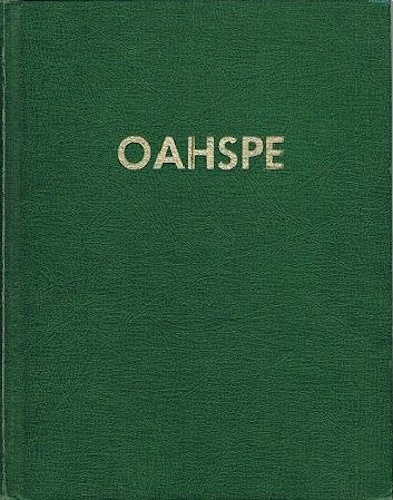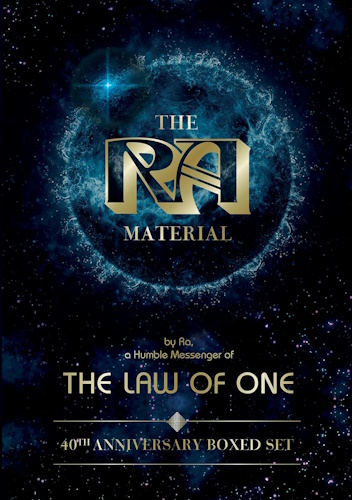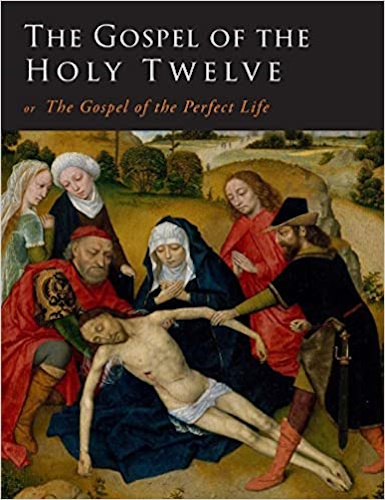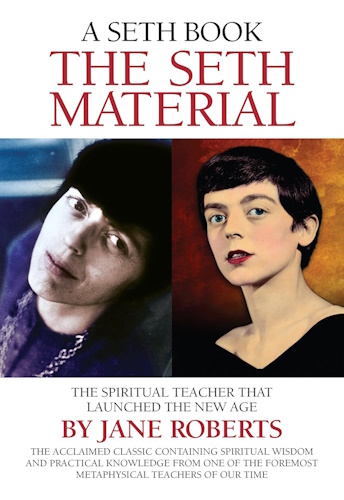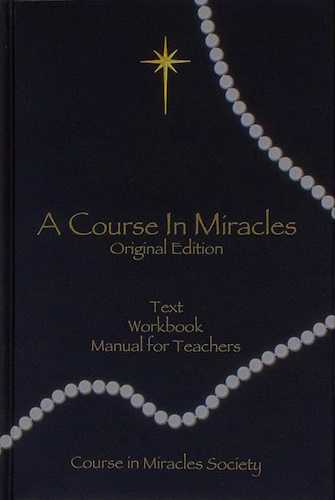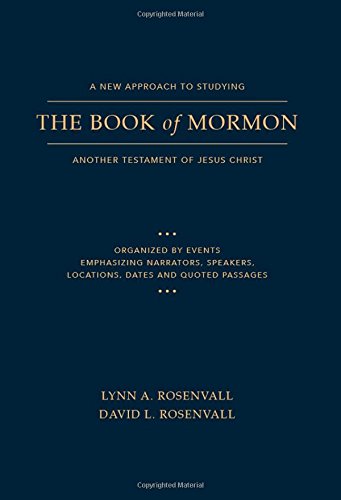
![]()
![]()
First Book of God
Chapter XIX
1. AND the angel of God appeared in the midst of the circle, in sar'gis, and talked with them face to face. And Hog said unto the angel: Of a truth, I know thou art not mortal, and yet thou hast the semblance of flesh, and limbs, and arms, and a very body, and art clothed withal, and thy clothes are like mortal clothes.
2. Now I tell thee face to face, I believe thou art no angel of the dead, but a very reflected self-substance, produced out of the substance of my father. How sayest thou? The angel answered, saying:
3. Mortal words cannot convince thee; neither the words of a spirit. Behold, I will show thee a friend of thine who is dead. With that, the angel showed the spirit of Hog's friend who was dead, and the man's name was Aara-acta; and so Hog said unto him:
4. Thou art a very counterpart of him I knew. What is thy name? The spirit answered: Aara-acta! I tell thee, O Hog, these things are true. I am the spirit of thy friend; yea, I am that very friend. Hog said: Where dwellest thou? Where hast thou been? Art thou happy? Hast thou visited all the heavens?
5. The spirit answered him, saying: I dwell on the earth even as before death; around about. I am happy; the glory of my present world surpasseth the earth. I have not visited the highest heavens. I am only as yet in the first resurrection. Up above us there are heavens where all the people are Gods and Goddesses. I cannot go there; they are too white. The spirit then disappeared, and Hog said:
6. What I have seen I have seen; what I have heard I have heard. Yet I believe not that I have seen a spirit nor heard one. A spirit must in reason be thin and subtle and air-like.
7. Then spake the angel of God, saying: How shall I please this man, O Ormazd? This day I showed myself in the door of the hut, thin and subtle and air-like, and he saw me not, nor heard me. Who can find a way to open this man's soul to Thy Wisdom, O Ormazd?
8. Now spake Yu-tiv: Great is the glory of Thy angel, O Ormazd! Heavenly are the spirits of the dead. Welcome, O ye angels of heaven! Then spake Whe-ish, saying: Even the lowest of heavens hath great glory! O the delight to dwell in such a paradise! Then Vus spake, saying: Such wisdom and truth! What are Thy kingdoms, O Father, when even the first heaven hath such glory. Git-un said: Because I have lived to behold these things, I will proclaim Thy wonders, O Ormazd, as long as I live! Vede said: Truth is Thy mightiest work, O Ormazd! Oos said: How wisely hast Thou framed Thy worlds, O Ormazd! Even Thy lowest of angels are a delight of my soul! Next spake Sa-it; he said: Give us of Thy abundance, O Ormazd. Open wide the gates of the lower heavens. I will
p. 356
take Thy angels to my arms and rejoice forever!
9. Brahma then came out of his trance, though he had heard and seen all. He said: Whoever cometh that can make me better, and show me how most to benefit Thy world, him, O Ormazd, send Thou unto me. And, lo, first of all, Brahma was answered! A light, bright as a sun, stood in the midst of the circle, and it was higher than the clouds, and displayed a staff on which was a banner of gold and silver; and on the banner, stars clustered to spell the words, Love, Wisdom and Power!
10. Presently the scene changed, and the angel of God said: He that spake last (Brahma) hath been answered first, because his words reached to the Fountain Head. Wheresoever ye send your prayers, there are ye answered. To which end I will now open the gates of the lower heavens, and ye shall witness what ye may.
11. The angel withdrew all the lights around about, so that great darkness might be upon the circle. Presently, Yu-tiv started as if affrighted somewhat. Then Vus sprang up, saying: What was that? And then another started, till presently all but Brahma and Hog were wild and startled, whispering: What do mine eyes behold! O that foul smell! O that vulgar touch! And then one screamed; and another, and another, until all broke and fled, screaming and crying out in fear and distress; flying in the darkness of the grove, frantic; almost dead with fear!
12. Hog ran not; saw nothing to fear; heard nothing to dread; felt nothing to make him ashamed.
13. And his father, Brahma, ran not, nor was afraid, and the twain called to the rest, pleaded, coaxed and called in vain; could not stop them; could not find them in the darkness. They returned to the hut, Brahma and Hog; saw the torches burning brightly, and came in and found Yu-tiv and her sons huddled together in each other's arms, white and pale as death.
14. Hog asked the reason. Yu-tiv said: Sh----, are they gone? Sh----, keep them away! Then spake Vus, saying: O my brother, ask not what we saw! Ask not what we felt, and what felt us! These things would not be lawful to mention! Say no more, in heaven's name! The air of heaven is full of demons (drujas).
15. Now spake Vede, saying: Alas, O my father, I dropped the holy book, the Veda I am writing. In my fright I let it fall. It is not sized yet, and should it rain ere morning, the holy words will be lost! And not for a thousand worlds would I go back to the grove this night. Oos said: Nor I, for a thousand worlds! Whe-ish said: For all the gold and silver in the world I would not go there this night.
16. So they all spake save Hog, and with all the love they bore for Ormazd's words, nothing doubting they were His very words, not one would venture amongst the evil spirits they had seen, to recover the book.
17. Then spake Brahma, saying: For many generations Ormazd hath labored for this; I will go myself; I know He will protect me at all times and in all places. And Brahma rose up to depart; but then spake Hog, saying: Nay, father; thou art old; I am fresh and young, and withal, know there are no spirits but in the imagination of men. I will go alone!
18. Nor will I bear a lantern nor a torch; nor will I whistle nor sing. I will confront all the evil spirits of hell and their captains. I will recover that book this night though I scrape every leaf from Ebon grove! And mark ye, too, I will return unscathed; nor will I see nor hear a spirit the while I am gone. So, Hog and Brahma only were fearless.
19. With that Hog departed, and after a while he returned, rejoicing, bringing the book; and he said: I neither saw nor heard a spirit, and I declare unto you, that none of you saw nor heard them, for there are none. By the extreme bent of your minds, these imaginings seem real. And as to the great Light, with the words, Love, Wisdom and Power, which I also saw, I say unto you it is some emanation from this, our holy and most loved father. How oft have we heard him use those same words! And as to those figures that talked, and had the semblance of men and women, even to their garments, I say unto you all, they emanate from the same source, even from our father, even Brahma.
20. Now spake Yu-tiv, saying: O happy unbelief, my son! O that I had been born as thou! O that I had never seen such sights as I saw this night!
21. Then said Oos: O happy brother, our youngest born! Would that I were like unto thee! O the vulgarity of those hands that came upon me this night!
22. Vus said: O that I had never
p. 357
known the unseen world! O that I had been born in darkness like unto thee, our most favored brother!
23. After that manner they all spake deploringly of their gift of su'is; and when they had thus spoken, the angel of God spake through Brahma, saying: Whilst it is yet night, I speak. With the dawn, at sunrise, is the Father's Voice. Hear me, then, briefly, expecting not much wisdom, for I am not long born in heaven.
24. Two great men created the Creator, the Faithist and the unbeliever; the one who hath passed through the trials of the flesh, and attained to the Father's Voice; for in becoming one with the Father, he no longer standeth in fear of anything in heaven or earth. The glory of constant resurrection is before him forever.
25. All men who have not attained to this may be likened unto a man going up a slippery hillside, who oft riseth high, but suddenly slideth low. They glorify themselves for their own light and wisdom and good gifts, rejoicing for self-sake for the glories that have fallen upon them. But they are cowards.
26. Nevertheless, the Creator created a great man amongst these; and such is the unbelieving man. He hath neither gold nor silver, nor house nor land; and he is without spiritual sight or spiritual hearing; but his glory is in understanding his own understanding.
27. He it is that subdueth the forest, and tameth the beasts of the field to man's service. He goeth alone in the dark, fearing naught. He followeth not the course of any man, but searcheth for himself; the priest cannot make him believe, nor can the angels of heaven; none can subdue his judgment. He beholdeth the glory of the earth and of manhood. He calleth to the multitude, saying: Why permit ye others, even priests, to think for you? Arise, O thou, and be a man! Arise, O thou, and be a woman!
28. He inspireth of the earth and for the earth; through his arms are tyrants and evil kings overthrown. Through him are doctrines and religions sifted to the bottom, and the falsehood and evil in them cast aside. Yea, who but Ormazd could have created so great a man as the unbeliever?
29. And these two men, the Faithist and the unbeliever, do mostly all the good that is done in the world; the one laboreth at the top of the hill, calling upward; the other laboreth at the bottom of the hill, pushing upward.
-
Urantia Book, 44:0.11 - The Celestial Artisans
Never in your long ascendancy will you lose the power to recognize your associates of former existences. Always, as you ascend inward in the scale of life, will you retain the ability to recognize and fraternize with the fellow beings of your previous and lower levels of experience. Each new translation or resurrection will add one more group of spirit beings to your vision range without in the least depriving you of the ability to recognize your friends and fellows of former estates.
-
Princess Bride 1987 Wallace Shawn (Vizzini) and Mandy Patinkin (Inigo Montoya)
Vizzini: HE DIDN'T FALL? INCONCEIVABLE.
Inigo Montoya: You keep using that word. I do not think it means what you think it means. -
Urantia Book, 117:4.14 - The Finite God
And here is mystery: The more closely man approaches God through love, the greater the reality -- actuality -- of that man. The more man withdraws from God, the more nearly he approaches nonreality -- cessation of existence. When man consecrates his will to the doing of the Father's will, when man gives God all that he has, then does God make that man more than he is.
-
Urantia Book, 167:7.4 - The Talk About Angels
"And do you not remember that I said to you once before that, if you had your spiritual eyes anointed, you would then see the heavens opened and behold the angels of God ascending and descending? It is by the ministry of the angels that one world may be kept in touch with other worlds, for have I not repeatedly told you that I have other sheep not of this fold?"
-
Urantia Book, Foreword - 0:12.12 - The Trinities
But we know that there dwells within the human mind a fragment of God, and that there sojourns with the human soul the Spirit of Truth; and we further know that these spirit forces conspire to enable material man to grasp the reality of spiritual values and to comprehend the philosophy of universe meanings. But even more certainly we know that these spirits of the Divine Presence are able to assist man in the spiritual appropriation of all truth contributory to the enhancement of the ever-progressing reality of personal religious experience—God-consciousness.
-
Urantia Book, 1:4.3 - The Mystery Of God
When you are through down here, when your course has been run in temporary form on earth, when your trial trip in the flesh is finished, when the dust that composes the mortal tabernacle "returns to the earth whence it came"; then, it is revealed, the indwelling "Spirit shall return to God who gave it." There sojourns within each moral being of this planet a fragment of God, a part and parcel of divinity. It is not yet yours by right of possession, but it is designedly intended to be one with you if you survive the mortal existence.
-
Urantia Book, 1:4.1 - The Mystery Of God
And the greatest of all the unfathomable mysteries of God is the phenomenon of the divine indwelling of mortal minds. The manner in which the Universal Father sojourns with the creatures of time is the most profound of all universe mysteries; the divine presence in the mind of man is the mystery of mysteries.
-
Urantia Book, 1:4.6 - The Mystery Of God
To every spirit being and to every mortal creature in every sphere and on every world of the universe of universes, the Universal Father reveals all of his gracious and divine self that can be discerned or comprehended by such spirit beings and by such mortal creatures. God is no respecter of persons, either spiritual or material. The divine presence which any child of the universe enjoys at any given moment is limited only by the capacity of such a creature to receive and to discern the spirit actualities of the supermaterial world.
-
Urantia Book, 11:0.1 - The Eternal Isle Of Paradise
Paradise is the eternal center of the universe of universes and the abiding place of the Universal Father, the Eternal Son, the Infinite Spirit, and their divine co-ordinates and associates. This central Isle is the most gigantic organized body of cosmic reality in all the master universe. Paradise is a material sphere as well as a spiritual abode. All of the intelligent creation of the Universal Father is domiciled on material abodes; hence must the absolute controlling center also be material, literal. And again it should be reiterated that spirit things and spiritual beings are real.
-
Urantia Book, 50:6.4 - Planetary Culture
Culture presupposes quality of mind; culture cannot be enhanced unless mind is elevated. Superior intellect will seek a noble culture and find some way to attain such a goal. Inferior minds will spurn the highest culture even when presented to them ready-made.
-
Urantia Book, 54:1.6 - True And False Liberty
True liberty is the associate of genuine self-respect; false liberty is the consort of self-admiration. True liberty is the fruit of self-control; false liberty, the assumption of self-assertion. Self-control leads to altruistic service; self-admiration tends towards the exploitation of others for the selfish aggrandizement of such a mistaken individual as is willing to sacrifice righteous attainment for the sake of possessing unjust power over his fellow beings.
-
Urantia Book, 54:1.9 - True And False Liberty
How dare the self-willed creature encroach upon the rights of his fellows in the name of personal liberty when the Supreme Rulers of the universe stand back in merciful respect for these prerogatives of will and potentials of personality! No being, in the exercise of his supposed personal liberty, has a right to deprive any other being of those privileges of existence conferred by the Creators and duly respected by all their loyal associates, subordinates, and subjects.
-
Urantia Book, 54:1.8 - True And False Liberty
There is no error greater than that species of self-deception which leads intelligent beings to crave the exercise of power over other beings for the purpose of depriving these persons of their natural liberties. The golden rule of human fairness cries out against all such fraud, unfairness, selfishness, and unrighteousness.
